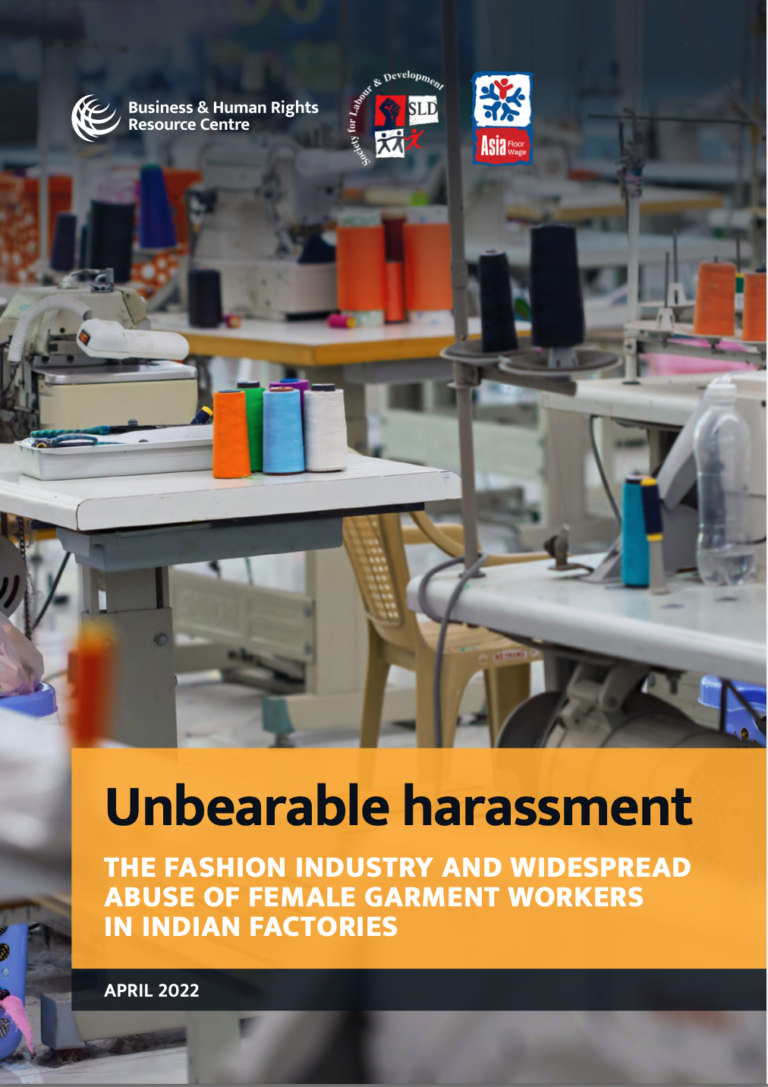Gender-based violence and harassment (GBVH) has been well documented in fashion supply chains for decades. Despite this, the realities for women garment workers – who toil to make the clothes in our closets – has remained largely unchanged.
This latest research, which draws on testimonies from 90 women in 31 factories across three major garment-producing hubs in India – Faridabad and Kapashera, Delhi NCR; Bangalore, Karnataka; and Dindigul, Erode and Tirupur, Tamil Nadu – revealed a widespread experience of women garment workers living in fear and experiencing severe forms of GBVH in their workplaces on a daily basis. Their testimonies also highlighted how abuse has intensified with fashion brands’ response to the COVID-19 pandemic, which created conditions of lower payment for increased hours of work. The 31 factories featured in this report employ tens of thousands of workers, the majority of whom are women.
Every single woman the authors spoke to reported either directly experiencing or witnessing GBVH in their factories, perpetrated by male supervisors and managers who drive them to meet unreasonable production targets set by fashion brands.

